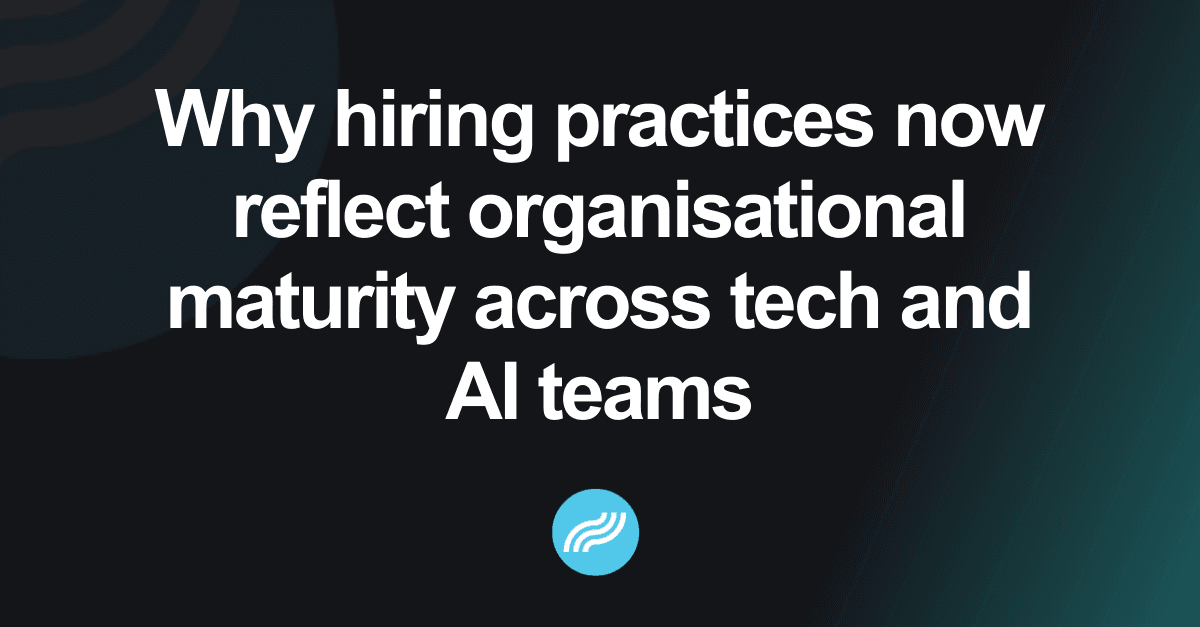Sep 29, 2025
How hybrid work is still rewriting the rules of recruitment in Europe
In 2025, recruitment isn’t just about matching skills to roles, it’s increasingly about matching work models to lifestyles. The shift to hybrid work is rewriting how companies attract and retain talent, especially in tech and AI sectors across Europe. At Tides Digital, we’re seeing this change dramatically reshape the talent landscape.
Hybrid is no longer a perk, it’s now expected
What started as a pandemic necessity has evolved into a baseline expectation. According to recent analysis by the Guardian, 85% of hybrid job postings in the UK now require at least two days in the office each week, up from 77% in 2024. This signals a pullback from full remote roles, and a balancing act between presence and flexibility.
That matters deeply when hiring across borders. Candidates increasingly filter out roles that demand rigid office attendance, especially when they have global options. For European hires, the difference between “hybrid friendly” and “strict office return” can be a deciding factor.
Recruitment strategies must evolve
For recruitment teams, this means we can’t just post a role and wait — we must sell the hybrid model as part of the employer value proposition (EVP). Below are key strategies we believe every recruiter should adopt now:
1. Be transparent about presence requirements
Include clear terms like “2 days in office per week” in job adverts. Ambiguity drives away candidates.
2. Localise hybrid models
What works in London won’t always fit Munich or Madrid. Adjust your hybrid approach in line with local norms, commuting infrastructure, and candidate expectations across European markets.
3. Use data to inform your remote boundaries
Track which roles perform well remotely, which need more face time, and where culture or collaboration suffers. Use metrics to fine-tune your hybrid model over time.
4. Highlight outcomes over time spent
Make your hiring narrative about what gets done, not when or where. Focus candidate messaging on autonomy, trust, and results.
Balancing the tension
However, hybrid work brings challenges. Some companies are pushing back against remote work mandates, demanding more in-office presence. But rigid policies risk losing top talent, especially in competitive fields like AI and tech.
Moreover, hybrid models can exacerbate inequality if not implemented thoughtfully: employees living closer to the office may gain visibility, while remote workers risk being overlooked. Careful design, equitable systems, and inclusive culture must accompany hybrid strategies.
What this means for European tech recruitment
For tech firms and recruiting partners operating across the UK and Europe, hybrid work is still a talent differentiator.
A few implications we’ve observed:
Roles offering hybrid flexibility attract 3–4x more applicants vs rigid in-office roles.
Candidates weigh hybrid models almost as heavily as compensation in deciding between job offers.
Local markets still differ — in some German cities, commuting norms are stricter, so roles with heavy office attendance are more acceptable.
At Tides Digital, we’re helping clients tailor their hiring models by combining market data, candidate sentiment, and hybrid model design.
The companies that win in 2025 will be those who bend their operating model to the workforce, not force the workforce into outdated norms.
Articles




